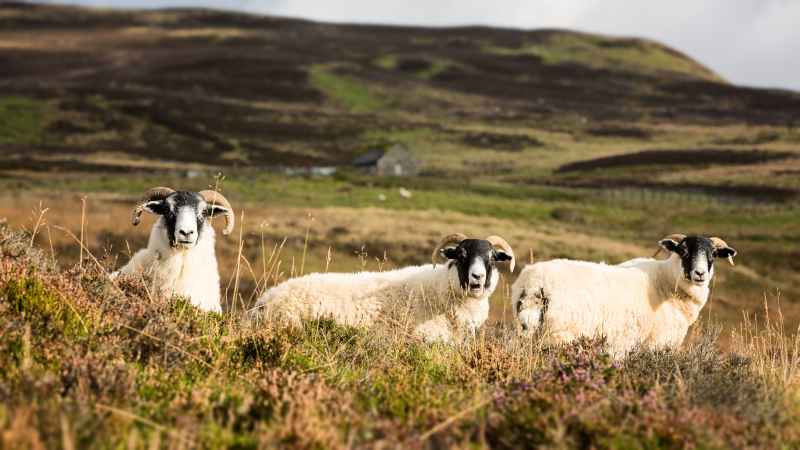
England’s struggling upland livestock farmers could earn over £15,000 profit a year by entering into private water management contracts with businesses and organisations in areas susceptible to flooding.
According to new analysis by the Green Alliance and the National Trust, upland farmers are losing £10,800 a year, on average, and it is feared that many will go out of business when Common Agricultural Policy (CAP) subsidies end in 2022.
But a new report by the two organisations shows that a new private market in water management services could be a source of profit for upland farmers, ensuring they can continue as the stewards of some of the UK’s most treasured landscapes.
The market would be based on a new model called a Natural Infrastructure Scheme, first proposed by Green Alliance and the National Trust in 2016, centred on the provision of ecosystem services such as natural flood management.
Drawing on the latest data and modelling, the analysis uses a hypothetical scheme in north west England to demonstrate how it could work and who would benefit. This area is home to nearly 1,800 upland livestock farms.
Flood management services
The example revealed that a scheme managed jointly by a group of ten upland farmers, selling natural flood management services, would be able to protect a downstream town against a severe 1 in 75 year flood event, and reduce levels of water pollution.
In this example, susceptible organisations downstream would buy into the scheme, such as Network Rail, the local electricity supplier and the local water and sewerage company.
The report says that these organisations would otherwise spend £11.23 million over a 15 year period to achieve the same level of protection from flooding and water contamination.
Creating and operating the Natural Infrastructure Scheme would cost the farmers £6.53 million over 15 years, the analysis says. This includes lost agricultural income from the land used for the scheme.
The overall cost saving from the scheme would be £4.7 million. Split equally between the buying organisations and the farmers, the buyers would save £2.35 million between them over 15 years, and the ten farmers would each earn £15,658 in profit per year for 15 years.
Alternative approaches
The new report urges the government to help this new market take off, including encouraging alternative approaches to flood risk planning, and setting a framework and targets in the forthcoming 25 year plan for the environment to stimulate the market.
The report says there is also a key role for post-Brexit agricultural policy, in nurturing new market-based mechanisms to support sustainable farming and land management.
In 2017-18 the National Trust and Green Alliance will be working with leading land managers and water companies to test the NIS concept in a real setting.
Mat Roberts, group sustainability strategy director at Interserve, said: “The disruption to agriculture and environmental management caused by exiting the EU presents an opportunity for new markets for ecosystem services.
“The science and economics that underpins these can’t currently compete with CAP payments. The NIS could help release private investment, enabling the UK Treasury to co-invest alongside the private sector in the uplands of the UK.
“This would help sustain fragile rural communities, improve infrastructure resilience, start to reverse biodiversity loss and increase carbon sequestration.”
'Fundamental reform'
Patrick Begg, rural enterprises director of the National Trust, said the current farming subsidy model needs "fundamental reform".
“Rather than being paid for how much land you happen to farm, a new model which delivers clear public benefit from public money is within reach after Brexit,” he said.
“But there’s an even bigger prize to be had. The NIS will open up new avenues for business to play its part in restoring a healthy, functioning natural environment. We need to grab this chance to make farming fit for the future whilst safeguarding our countryside for future generations.”
